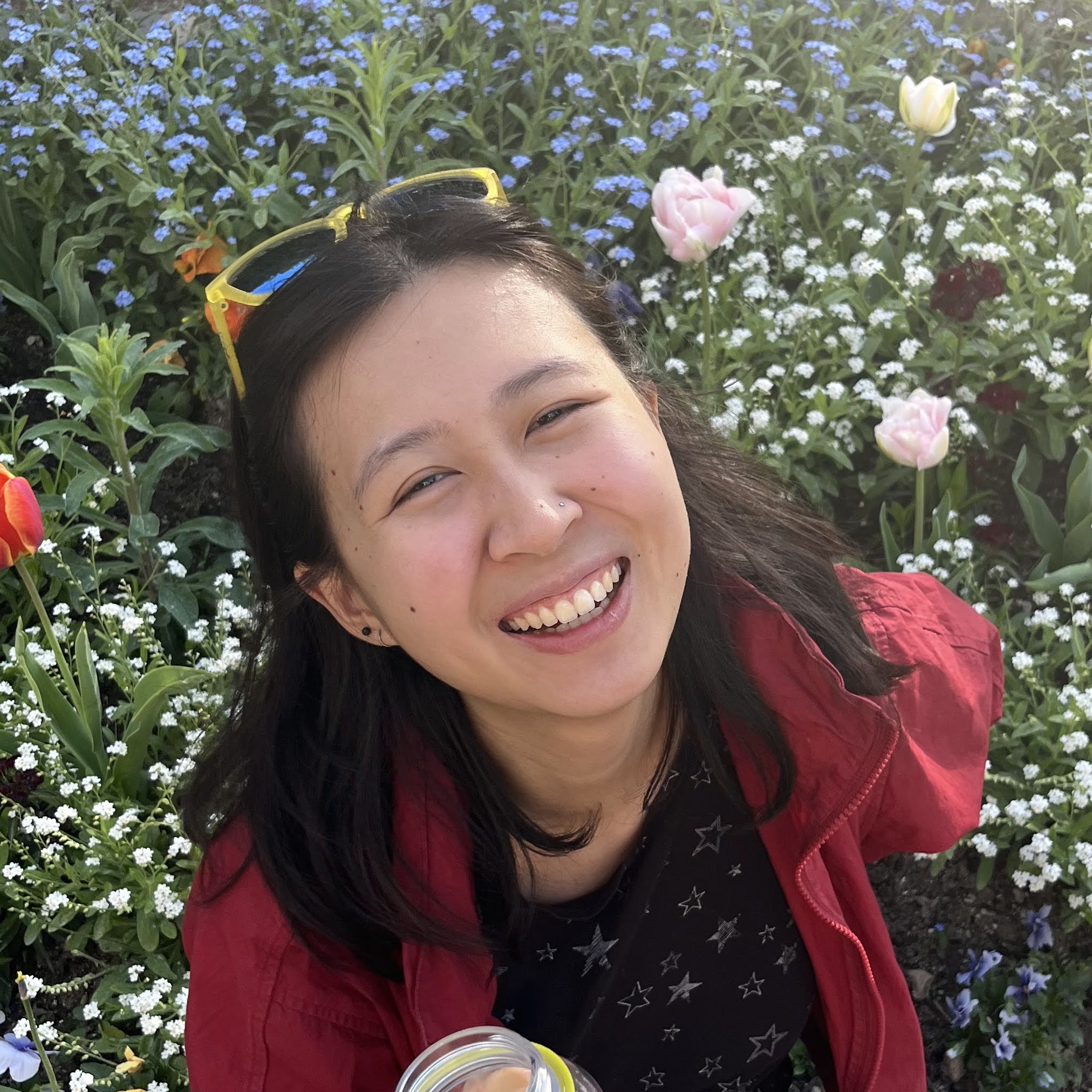About
I'm a fourth-year PhD student in the
Department of Brain and Cognitive Sciences
at MIT, advised by Rebecca Saxe. My
research focuses on how people act, communicate, and understand others'
behavior in the context of social structures like relationships and
groups. Previously, I graduated from Harvard College in 2022 with an AB in
Chemistry & Physics and a language citation (minor) in Modern Standard
Arabic.
Preprints
-
Alicia M Chen, Robert D Hawkins, and Rebecca Saxe.
Signaling social identity in referential communication. (under review)
-
Alicia M Chen and Rebecca Saxe.
Expectations of reciprocal generosity are specific to equal
relationships. (under review)
-
Alicia M Chen and Rebecca Saxe.
Generous acts have contrasting meanings in equal versus hierarchical
social relationships. (in prep)
Journal articles
-
Alicia M Chen, Kartik Chandra, and Rebecca Saxe. Computational models of
social cognition should incorporate social relationships as core
primitives. Commentary on Thomas, A. J. Behavioral and Brain Sciences,
in press.
-
Alicia M Chen*, Matthias Hofer*, Moshe Poliak, Roger Levy, and Noga
Zaslavsky.
Discrete and systematic communication in a continuous signal-meaning
space. Journal of Language Evolution, 2025.
[Hurford prize for best student oral presentation, Evolang XV]
-
Alicia M Chen, Andrew Palacci, Natalia Vélez, Robert D Hawkins*, and
Samuel J Gershman*.
A hierarchical Bayesian model of adaptive teaching. Cognitive Science, 2024.
-
Natalia Vélez, Alicia M Chen, Taylor Burke, Fiery A Cushman*, and Samuel
J Gershman*.
Teachers recruit mentalizing regions to represent learners'
beliefs. Proceedings of the National Academy of Sciences, 2023.
-
Luis Hernandez-Nunez, Alicia Chen, Gonzalo Budelli, Matthew E Berck,
Vincent Richter, Anna Rist, Andreas S Thum, Albert Cardona, Mason Klein,
Paul Garrity, and Aravinthan DT Samuel.
Synchronous and opponent thermosensors use flexible cross-inhibition
to orchestrate thermal homeostasis. Science Advances, 2021.
Conference papers
-
Alicia M Chen and Rebecca Saxe.
How turn taking communicates desired equality in social
relationships. Proceedings of the 46th Annual Meeting of the Cognitive Science
Society, 2024.
-
Alicia M Chen and Rebecca Saxe.
People have systematic expectations linking social relationships to
patterns of reciprocal altruism. Proceedings of the 45th Annual Meeting of the Cognitive Science
Society, 2023.

